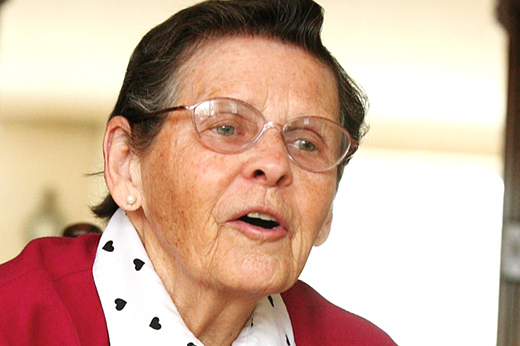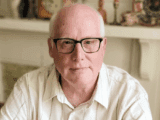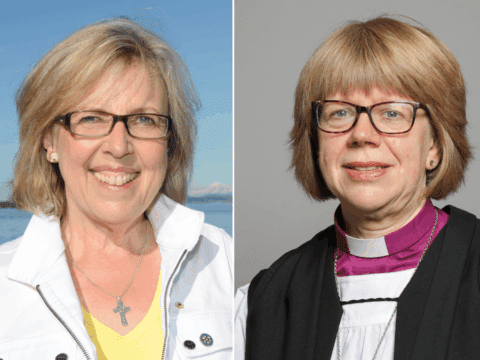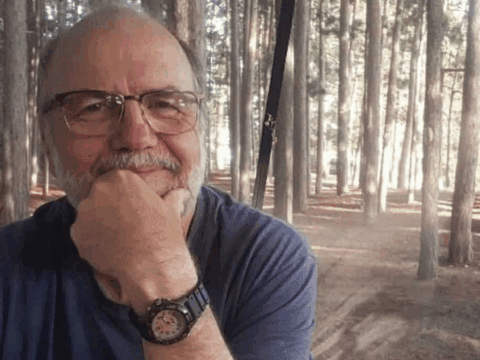Q Lois, you’ve been moderator of the United Church, president of the World Council of Churches, and a senator. Which was the best gig?
A I wouldn’t use the word “best,” but when I got to the Senate I could use all my ecumenical experience with the World Council for public policy for Canada; that astonished me. It was the same agenda as at the WCC but in a national setting. When I was with the World Council and I’d come home, nobody really wanted to hear about it; people’s eyes would glaze over. But in the Senate, I could draw heavily on those experiences and use them to make things happen.
You may unsubscribe from any of our newsletters at any time.
Q In the Senate, were you looked on as “the church lady”?
A Yes! I was expected to speak on behalf of the church, and that surprised me. But it shouldn’t have. I think it’s the age of the senators. They’re fairly old, so they come from a time when the church was heavily involved in public policy.
Q As moderator, you were always lobbing stuff into the political process. And then you were on the inside . . .
A That’s right. Suddenly you’re on the inside, and now what do you do?
Q Did you have a lot of people tossing stuff in to you?
A Not a lot. Hardly anything from the churches. When I went to the churches, they were very helpful in responding. But very few approached me. The only church group that ever approached me was the Catholic Women’s League on abortion. The United Church is singularly absent from that whole scene. We’ve lost our nerve. We’ve vacated the public forum, so the fundies have moved in. We’re so afraid of being tagged as “Christians” trying to convert other people that we will not say, “I’m a Christian and this is what it means.”
We’re really good at social justice but really bad at our connection with Jesus. The term “Christian” has been stolen by the fundamentalists, and we need to rehabilitate it.
Q This month, the United Church marks its 85th anniversary. What should we be celebrating?
A We should be celebrating our ecumenical roots and ecumenical posture. We are unique in that. In the WCC, we are looked upon to give some leadership in this area — and not just interchurch but interfaith. We’re the only church I know of that has had consistent staff on the interfaith desk. We’ve got a hugely pluralistic society here in Canada, and our church is in a position to give a lead in interfaith work. That’s our main contribution.
The second one for which we’re looked at jealously is our social justice record; we understand that Jesus required “just” relationships among people, and our church has been noted for that.
Q What about the place of women in the church?
A The place of women, yes, and gays and lesbians as well. I really rejoice in the role of women, particularly when I talk to my Catholic colleagues — but today we’ve got to worry about the place of men in the church. At Emmanuel College, we’ve got 15 candidates for ministry, and every one is a woman. And that’s no better than if all of them were men. Where are the men?
Q In a recent op-ed piece, you write, “My nightmare is that our church continues a governance model that is highly controlled by a few, that discourages debate or dissent and allows decisions to be made without debate by plenary or accountability to the whole body.” I wonder if that is part of what drives men away? It certainly chased me away.
A That could be. I never thought of that. But it chased me away, too. I find the current processes to be highly controlling and manipulative, even though they appear to be open and involving. It’s very deceptive. I really rejoiced in some of those meetings in the 1980s where we would have knock-down battles and then go out for coffee together. That doesn’t happen now. It’s got to be consensus, and it’s got to be all nice. It’s a great loss.
Q You’ve never worried about confrontation, have you?
A No. Because if there’s open debate, then you decide. But I experience the way our church courts work now as manipulation. I find it extremely troubling, for example, that a third of the General Council delegates decided our policy on Israel.
Q You were elected moderator in 1980. Do you think you’d be elected now?
A Oh, I don’t know. I don’t think so. Whether I’d want to be is another question. The advantage of saying what you really believe on an issue is that you don’t have to remember what you said last time. But there’s definitely an aversion to that style today, and I find that very sad. No, I wouldn’t be elected today. I say too much.
Q You’ve been quite critical of the General Council’s decision to cut funding for youth work — and especially the Student Christian Movement. Why is that so important to you?
A Well, where does the church think the leadership is going to come from? It’s going to come from young people. On campus, young people are making decisions about their lives, their relationships and their faith — critical decisions. And the United Church is barely present. I meet student after student who’s never heard of The United Church of Canada. It’s not just that they don’t know what we stand for — they’ve never heard of us.
I know we fund chaplains — but a chaplain for how many students? We’d never think of sending a minister to that many people. We should pour more resources into that area — everyone else does. The place is full of fundamentalist sects, but we’re not there. The youth don’t know anything about what the United Church stands for, so it’s a blank slate and that’s a great opportunity. Let’s go for it.
We have a magnificent history — let’s capitalize on it. Don’t cut your future leadership, folks!
Q You’ve also been a great advocate of ecumenism. Where are we at, in the church in general, on the ecumenical endeavour today?
A Pfft! Rock bottom. Ecumenism grew out of mission. When the church was engaged in mission, ecumenism was at its height. If you’re in mission, you need the others. But if you’re not in mission, who needs you? If you’re into survival, you’re into yourself, and that’s what’s going on.
Q Anniversaries are about looking ahead as well as looking back. How do we get from 85 to 100?
A By not asking that question. That’s a survival question, and I think we need to ask a missional question. Do we have a mission? Are we still promoting the spirituality of engagement? And I don’t think we are. We’ve become very introverted — looking at ourselves. We need what the World Council calls a spirituality of engagement, a spirituality of combat.
Q Does it matter whether we get to 100 or not?
A I don’t think it matters as an institution. But the values — ecumenism, social justice, the understanding of Jesus — those are important. Whether it comes through the United Church or another manifestation of the church doesn’t matter to me. But God is not going to leave Herself without a witness. The church is going to have to be a very different-looking institution.
Q Let’s assume we’re having a worship service to celebrate the 85th, and you’re asked to preach.
A Argh!
Q What would you say? How would you approach it?
A It would be like what I preached at the 75th: that text in Acts where the Holy Spirit forbade Paul from going into Asia, so he had to go somewhere else. What doors has the Spirit closed for us? And what is opening? We have no cultural supports anymore — that’s a closed road. Let’s stop depending on it and look at some of the opening roads.
This story originally appeared in the June 2010 issue of The Observer with the title “Interview with Lois Wilson.”















What a selfless clear vision she had, and lived.
Can there be others who will have the courage to follow her vision ? I hope so, the world needs it.